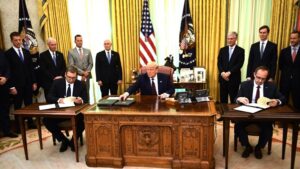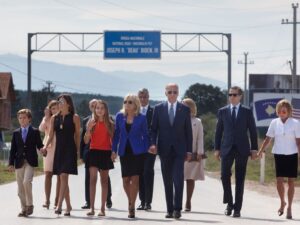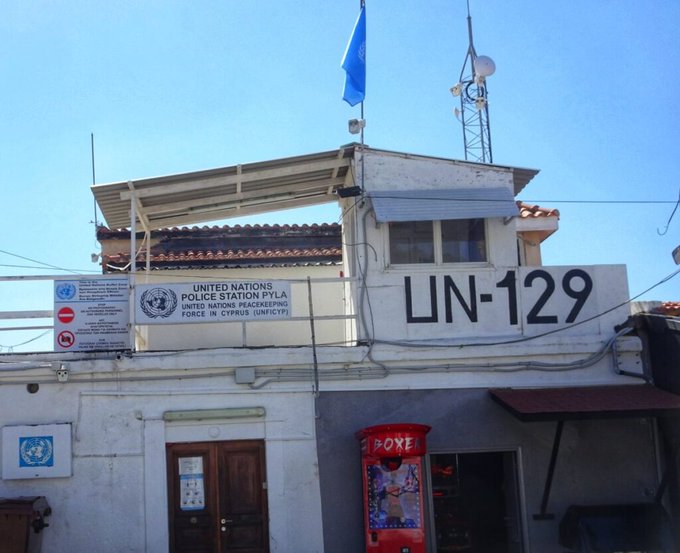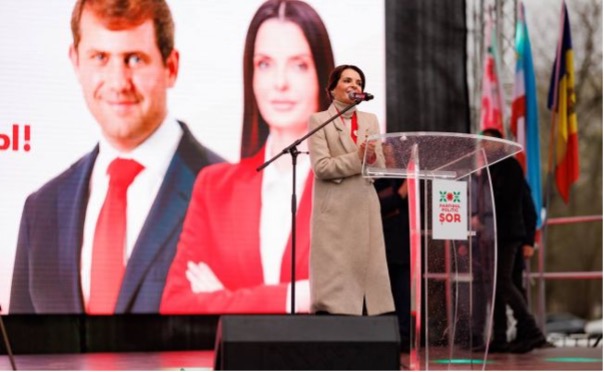Derecognitions, Dialogue and External Mediation in Kosovo-Serbia Strained Relations
On September 4th 2020, Kosovan and Serbian representatives signed the Economic Normalization Agreements, often referred to as the ‘Washington Agreements’, under the custody of the then-United States of America (U.S.) President Donald Trump. These documents encompassed a variety of commitments ranging from the economy, infrastructure and free movement in the region. One of the most significant points, however, was the Moratorium designating that for one year Kosovo would refrain from seeking membership into international organisations, and that Serbia would halt its campaign aimed at decreasing Kosovo’s bilateral recognitions. The recent expiration date of the Moratorium has given rise to several dilemmas on how future events will disentangle.
Serbia’s derecognition campaign became known in 2017, when a group of countries, mostly located in Africa and Asia, began issuing letters that withdrew or suspended the recognition of Kosovo. Around 15 countries have switched sides, though the exact number is uncertain. Kosovo’s Ministry of Foreign Affairs and Diaspora (MFAD) holds that it is recognised by 117 countries on its website. For the Serbian political elite the campaign was regarded as an international success, which could also provide valuable domestic political gains. In contrast, due to lack of universal recognition and a lower diplomatic presence, Kosovo was faced with limited tools to counter-act, thus it urged the EU and U.S. to exert pressure on Serbia. Kosovan institutions argued that Serbia was abusing the ongoing EU-facilitated dialogue, by framing the negotiations as focused on the political status, whilst their core goal is the normalisation of relations. Suspicion of Moscow’s involvement was also raised, as the Russian Federation had reportedly signed bilateral agreements with Suriname, Burundi, Commonwealth Dominica, Grenada, Madagascar and Palau shortly before these countries made the switch. However, within the years 2017-2020 Belgrade’s orchestrated campaign received little international attention from Washington and Brussels, much to Prishtina’s frustration.
This changed in September 2020, when the U.S.-facilitated Moratorium came into force, forging a new situation on the ground. During this period Kosovo has not applied for membership into any international organisation and its number of recognitions has remained intact. In practice, one of the key effects of the Moratorium has been stopping Kosovo’s bilateral recognitions decrease in three years. While this came at the cost of deserting the multilateral pillar of its foreign dealings, it is likely that Kosovo would have faced difficulties in acceding major international organisations during this period, due to Covid-19 and national elections held in February, in addition to the challenges of the lobbying process to ensure the required votes.

Image: Signing ceremony of the ‘Washington Agreements’ at the White House by Hoti (Prime Minister of Kosovo) and Vučić (Prime Minister of Serbia). (Source)
As such, one could ask whether the Moratorium could be regarded as a U.S. tactic aimed at temporarily suspending Serbia’s derecognition campaign, in order to preserve Kosovo’s international space? Indeed, strategies utilised to lend international support for preserving the diplomatic gains of contested states, in face of diplomatic threats, could be a topic worthy of deeper research. Still, such as assumption is not unreasonable if the context and history of the ties are examined more closely. Whilst since 2008 Kosovo’s recognition agenda has also been supported to different degrees by a group of states, perhaps most actively from Albania, Austria, France, Germany, Turkey and the United Kingdom, the U.S. remains its key source of support.
Kosovo – U.S. ties are distinct not only with regard to the reliance of the former on the latter, but also due to support of the latter for the former, even by disregarding hesitancy within the transatlantic bloc. For example, in 2018 the then-Prime Minister of Kosovo Haradinaj, following a visit in the U.S., declared that “Kosovo has the blessing of America for the Army.” This enabled the beginning of transition of Kosovo’s Security Forces (KSF) to Kosovo’s Armed Forces (KAF) later that year, amidst public disapproval from NATO’s General Secretary. In addition, U.S. officials tend to frame ‘mutual recognition’ as the end-goal of the EU-led dialogue process between Kosovo and Serbia, while the mediator itself adopts the more wider, also ambiguous, notion of ‘normalization of relations’.
In the relevant literature an asymmetric overreliance on another larger and more powerful state has often been described through the patron-client concept. Such external support is regarded as vital for the survival and international recognition of several contested states. On the other hand, U.S. efforts aiming to protect the international recognition of contested states are not novel. As a response to several switches of recognition from Taiwan to the Government of the People’s Republic of China, the Taiwan Allies International Protection and Enhancement Initiative (TAIPEI) was approved. The act seeks to conserve Taiwan’s international space, obliging U.S. institutions, among others, to consider altering “economic, security, and diplomatic engagement with nations that take serious or significant actions to undermine the security or prosperity of Taiwan.” Though the Moratorium and the ‘Taiwan act’ possess fundamental differences – legal status, time-frame and U.S. involvement – they have both been largely shaped in response to threats towards the international space of the U.S.’s non-UN partners.
Interestingly enough, on September 3rd 2021, the U.S. Department of State encouraged Kosovo and Serbia to continue the Moratorium in order to support the dialogue efforts. However, this statement lacked an implementation time-period, and moreover, due to not having signatory parties, it could not effectively be considered obligatory. Here the question is: will this appeal be respected? The Serbian President Vučić has continuously claimed that several countries are ready to withdraw the recognition of Kosovo. Moreover, Kosovo’s new Government which took power in March 2021 – dismissing the coalition which had signed the Washington Agreements – has objected to the Moratorium on the grounds that membership of international organisations represents a constitutional right.
What is next remains to be seen. Yet, some puzzling scenarios could be projected. The first is that the Moratorium is respected in the following months, thus it becomes normalized. As of the time of writing, both sides have refrained from revealing their position regarding further implementation. The second scenario is where one side makes a move. This, in turn, would make Washington’s response even more intriguing. Should Kosovo single-handedly decide to pursue membership into a certain international organisation, the U.S. would arguably be less-inclined to lend support against Serbia’s derecognition campaign; in turn the former’s international standing could potentially suffer a serious blow. On the flipside, if Kosovo’s recognitions suffer a decrease due to Serbia’s restored campaign, it will be interesting to see if the U.S. decides to retaliate, namely by attempting to institutionalize the ‘recognition shield’, similar to the case of Taiwan.

Image: Joe Biden with his family in Kosovo at the opening ceremony of the road named after his late son Beau Biden, who worked there in the post-conflict period. (Source)
On a broader scale, these dynamics should also be observed in the framework of the Biden Administration’s approach towards attempts of the European Union (EU) to conclude a normalisation of relations agreement between Kosovo and Serbia. The open frictions between Trump’s Administration and the EU had led to the appointment of Richard Grenell as White House Special Envoy for the Kosovo-Serbia dialogue. This ‘parallel’ appointment not only overlapped with the UN-granted mandate of the EU as a mediator in the talks, but also overshadowed the U.S. State Department Envoy for Western Balkans, Matthew Palmer.
In addition to facilitating the Washington Agreements in September 2020, the previous administration was reportedly open to including land swap in an eventual final agreement between Kosovo and Serbia. This idea was largely rejected by public opinion in Kosovo and Serbia, and by several European countries, most importantly Germany and the United Kingdom. On the contrary, the Biden Administration sees no benefits from direct White House involvement in the dialogue process, nor the land swap idea. Instead, there is palpable interest to support EU’s lead, as part of a restored joint U.S.-EU agenda. Overall, Biden’s policy in relation to Kosovo-Serbia relations in comparison to Trump represents both change (no appointed White House envoy, nor signals of favouring the land swap and repaired EU-U.S. coordination) and continuity (Washington Agreements).
To conclude, the entry into force of the U.S.-facilitated Moratorium in September 2020 was significant, as it contributed to creating a new situation on the ground, by pausing Serbia’s derecognition campaign. The recent call from the State Department to continue its implementation for an unspecified time-period is effectively non-obligatory. Yet, its implementation (or disregard) could play a significant role in the future relations between all involved actors. In addition, this context could affect EU’s efforts as a mediator seeking to facilitate a final normalization of relations agreement, which could offer a boost to long-term stability in Southeast Europe and facilitate future EU accession. Lastly, the recent events also serve as a suitable opportunity to evaluate the extent or limits of the U.S.’ international support towards Kosovo, as its main international backer.
Author: Butrint Berisha






